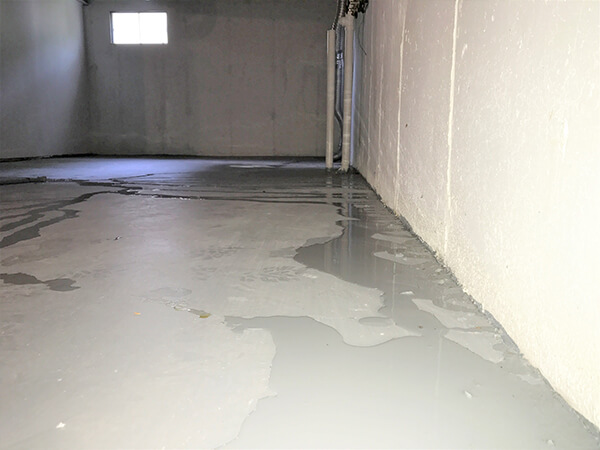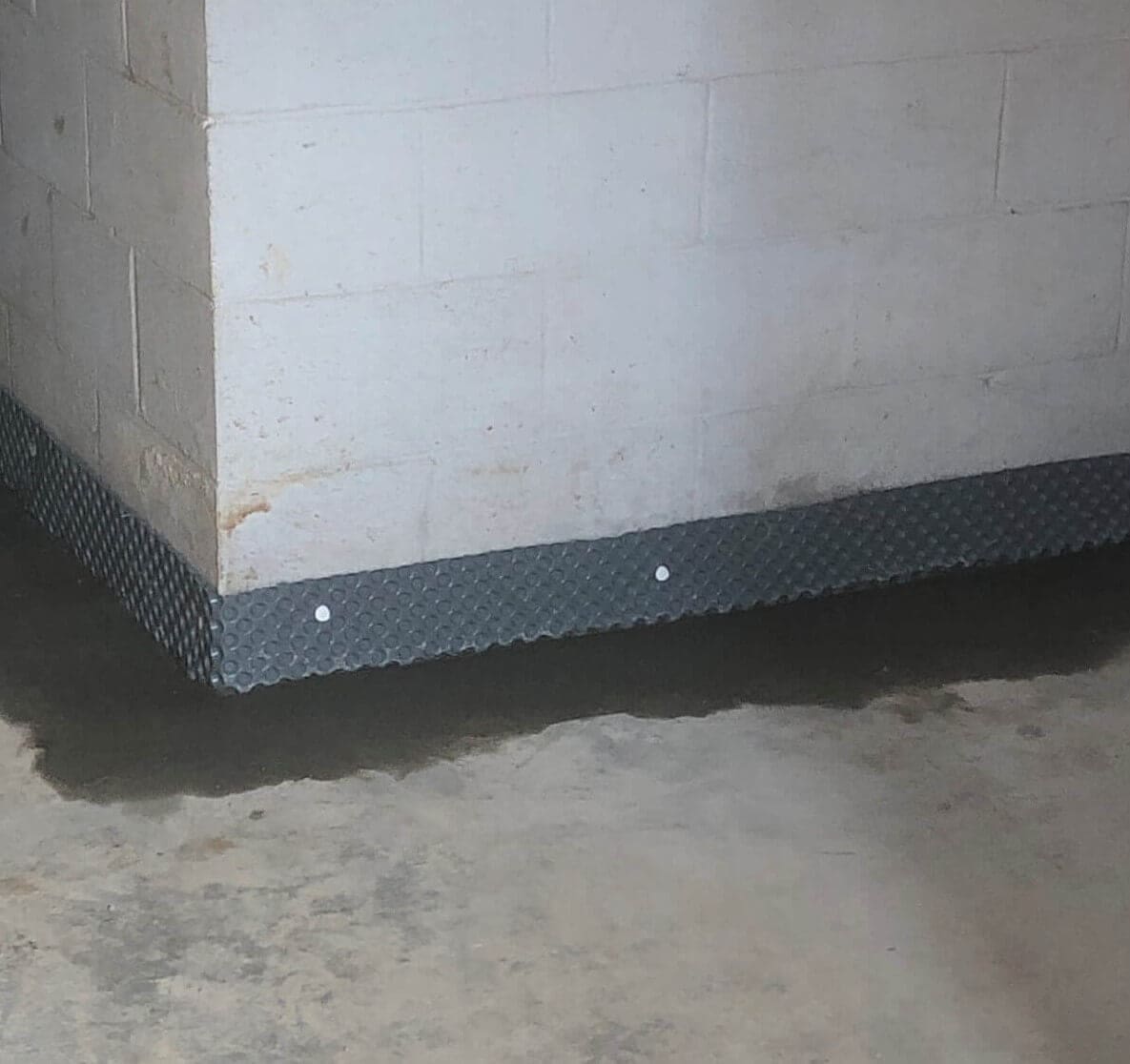Exploring the Various Techniques of Cellar Waterproofing and Their Advantages
Cellar waterproofing is vital for keeping a dry and stable setting. Numerous methods exist, each with distinct benefits. Inside sealants shield versus dampness intrusion, while exterior systems address drain problems. Sump pumps and French drains pipes manage water efficiently, and dehumidifiers control humidity levels. Comprehending these choices can assist house owners make educated choices. Yet, the appropriate solution frequently depends upon certain scenarios and demands. What factors should one consider when selecting the ideal technique?
Interior Sealants: An Effective Barrier Against Dampness
Inside sealants serve as a crucial line of protection against dampness invasion in basements. These products are made to produce a water resistant barrier on wall surfaces and floors, successfully stopping water from leaking in. Available in numerous types, including paints, sealers, and finishes, they can load fractures and pores in concrete, ensuring a much more protected environment.The application procedure usually involves cleansing the surfaces to get rid of dirt and debris, adhered to by the cautious application of the sealer. When healed, these products boost the toughness of the basement while minimizing humidity levels, which can lead to mold and mildew development and structural damage.Moreover, indoor sealants are typically very easy to apply and can be a cost-effective option for homeowners aiming to reduce wetness concerns. By offering a dependable layer of defense, they play an important function in safeguarding the basement area, maintaining both its integrity and functionality.
Outside Waterproofing Equipments: Protecting Your Foundation
Exterior waterproofing systems offer a robust solution when homeowners seek to safeguard their foundations from water damage. These systems typically involve applying water-proof membrane layers and water drainage systems to the outside wall surfaces of a basement. By producing an obstacle against groundwater, they properly protect against dampness from permeating the foundation (Water Solutions).One notable benefit of outside waterproofing is its capability to attend to the source of water intrusion prior to it gets to the interior. This proactive strategy not just safeguards structural integrity yet likewise boosts the longevity of the home.Moreover, exterior systems can improve the total water drainage around the foundation, reducing hydrostatic pressure. This decreases the possibility of cracks and heaving that can arise from water build-up. As a result, home owners can take pleasure in a dry, secure cellar environment, considerably improving property worth and convenience. Inevitably, outside waterproofing systems are an important investment in keeping a healthy home structure
Sump Pumps: Handling Water Buildup Effectively
Sump pumps play an essential function in taking care of water build-up in cellars, offering a reliable solution for homes susceptible to flooding or excess moisture. These tools are set up in sump pits, typically situated at the most affordable point of a cellar, where they gather water that permeates in from the bordering soil. When the water degree rises, the sump pump activates, effectively draining the excess water to a marked drain location, thereby stopping possible damage to the foundation and interior spaces.There are 2 primary sorts of sump pumps: submersible and pedestal. Submersible pumps are set up undersea, making them much less noticeable and typically quieter, while their website stand pumps are positioned above the sump pit and are simpler to maintain. By successfully taking care of water accumulation, sump pumps not only protect versus architectural damages yet also add to a healthier living setting by reducing humidity levels and stopping mold and mildew development.
French Drainpipes: Rerouting Water Far From Your Home

Dehumidifiers: Decreasing Moisture Levels for a Drier Environment
Basement waterproofing includes different techniques, and dehumidifiers play a considerable function in preserving a dry atmosphere. By successfully minimizing moisture degrees, dehumidifiers assist protect against moisture build-up, which can cause mold and mildew development, architectural damages, and undesirable smells. These devices work by removing excess moisture from the air, creating a healthier and more comfy space.In enhancement to enhancing air high quality, dehumidifiers can improve the efficiency of other waterproofing techniques, such as sealing and drain systems. They aid keep ideal moisture degrees, commonly in between 30% and 50%, which is crucial for stopping condensation on walls and floors.Moreover, modern dehumidifiers are energy-efficient and come with functions like programmable settings and automated shut-off, making them user-friendly. In general, incorporating a dehumidifier into cellar waterproofing intends supplies a crucial layer of defense against moisture-related issues, website link therefore securing the home's integrity.
Regularly Asked Inquiries

For How Long Do Waterproofing Solutions Generally Last?
Waterproofing services typically last between 5 to 20 years, relying on the approach utilized, high quality of materials, and environmental conditions. Normal upkeep and assessments can assist extend their performance and total life-span.
Can I Water Resistant My Basement Myself?
The private considered whether to waterproof the basement individually. They uncovered that while do it yourself options exist, knowledge of techniques and products is necessary to guarantee performance, and specialist support may provide far better long-lasting results.
What Are the Indicators of Basement Moisture Issues?
Indicators of basement moisture concerns consist of visible water discolorations on walls, moldy odors, peeling off paint, mold development, and moisture on floors. High moisture degrees might also show underlying dampness problems requiring interest to avoid more damages.
Just How Much Does Basement Waterproofing Price?
The expense of cellar waterproofing varies extensively, commonly ranging from $1,500 to $5,000. Factors affecting expenses include the extent of moisture problems, the picked method, and the geographical place of the residential property.
Will Waterproofing Increase My Home's Value?
The inquiry of whether waterproofing enhances a home's value usually arises among home owners. Generally, efficient waterproofing can improve building appeal, reduce damage dangers, and possibly bring about greater resale costs, relying on the local property market. By producing an obstacle versus groundwater, they effectively avoid wetness from passing through the foundation.One noteworthy advantage of outside waterproofing is its ability to resolve the source of water invasion before it reaches the interior. Sump pumps play a crucial duty in managing water build-up in cellars, offering a reliable solution for homes prone to flooding or Get More Information excess moisture. When the water level rises, the sump pump activates, efficiently pumping out the excess water to a designated drainage area, thereby avoiding potential damage to the structure and indoor spaces.There are 2 primary types of sump pumps: completely submersible and stand. Exterior Drainage Solutions. By routing groundwater and surface water away from the foundation, French drains pipes aid stop water build-up in basements and creep areas, decreasing the risk of architectural damages and mold growth.Installation generally occurs around the boundary of the home, making sure that water is efficiently drawn away. Indicators of basement dampness concerns include noticeable water discolorations on wall surfaces, moldy odors, peeling off paint, mold development, and moisture on floors